Parenting help for dads aims to cut youth violence
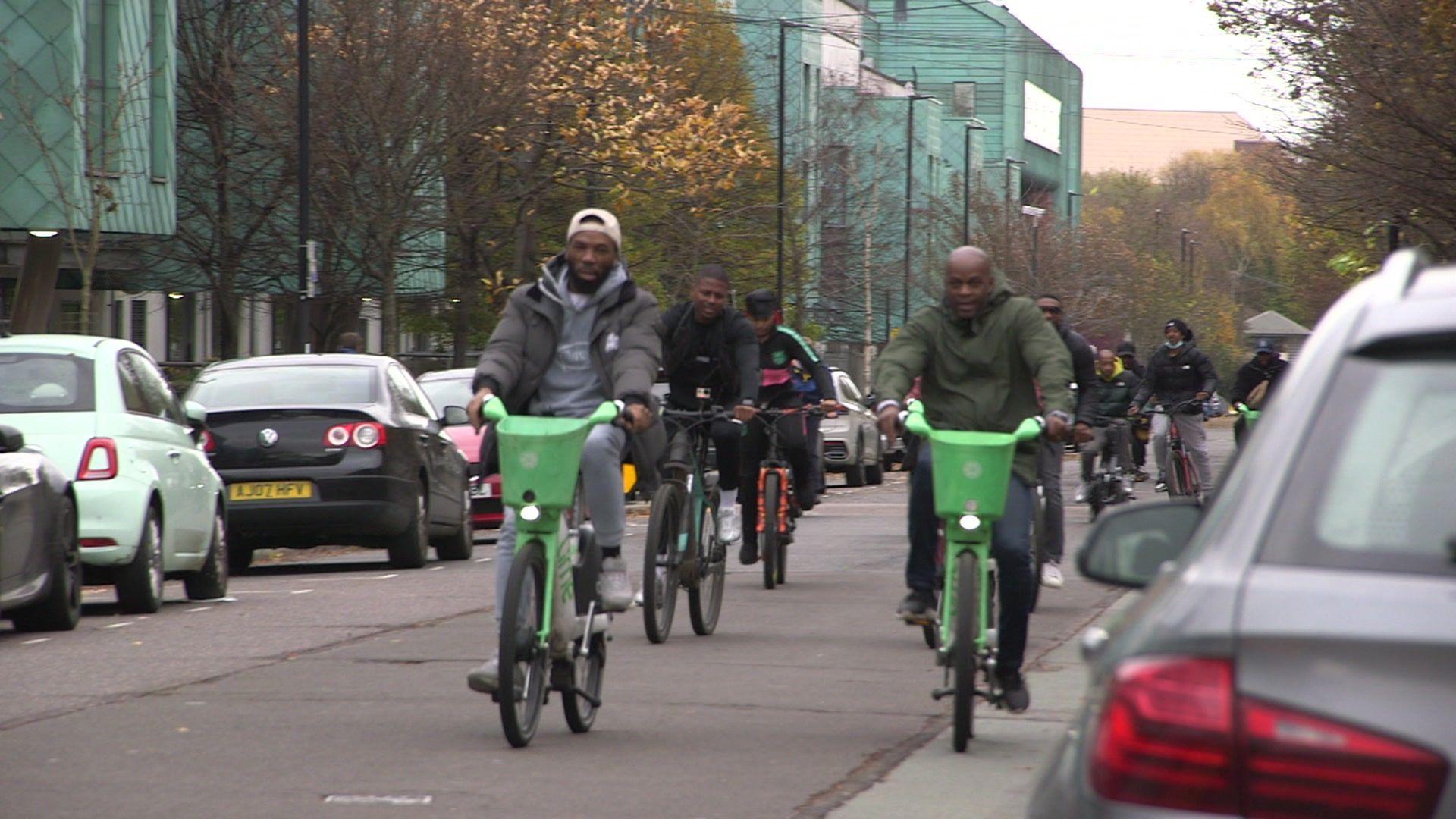
A number of groups are part of a £350,000 programme from London’s Violence Reduction Unit, aimed at improving relationships between dads and their children
- Published
"Riding for the fathers, riding for the dads!"
It’s a surprising sight for anyone passing by an empty Arsenal football ground, on a blustery Sunday afternoon - a group of around a dozen men on bikes, proudly chanting about their love of being a dad, as they ride laps around the Emirates stadium.
"It's good fun!" says Terrell Lewis, a father of two girls, aged 10 and four. "Bonding, health and fitness, and celebrating fatherhood."
This event has been organised by some of the groups receiving funding as part of a new £350,000 programme from London’s Violence Reduction Unit (VRU) aimed at improving relationships between dads and their children.
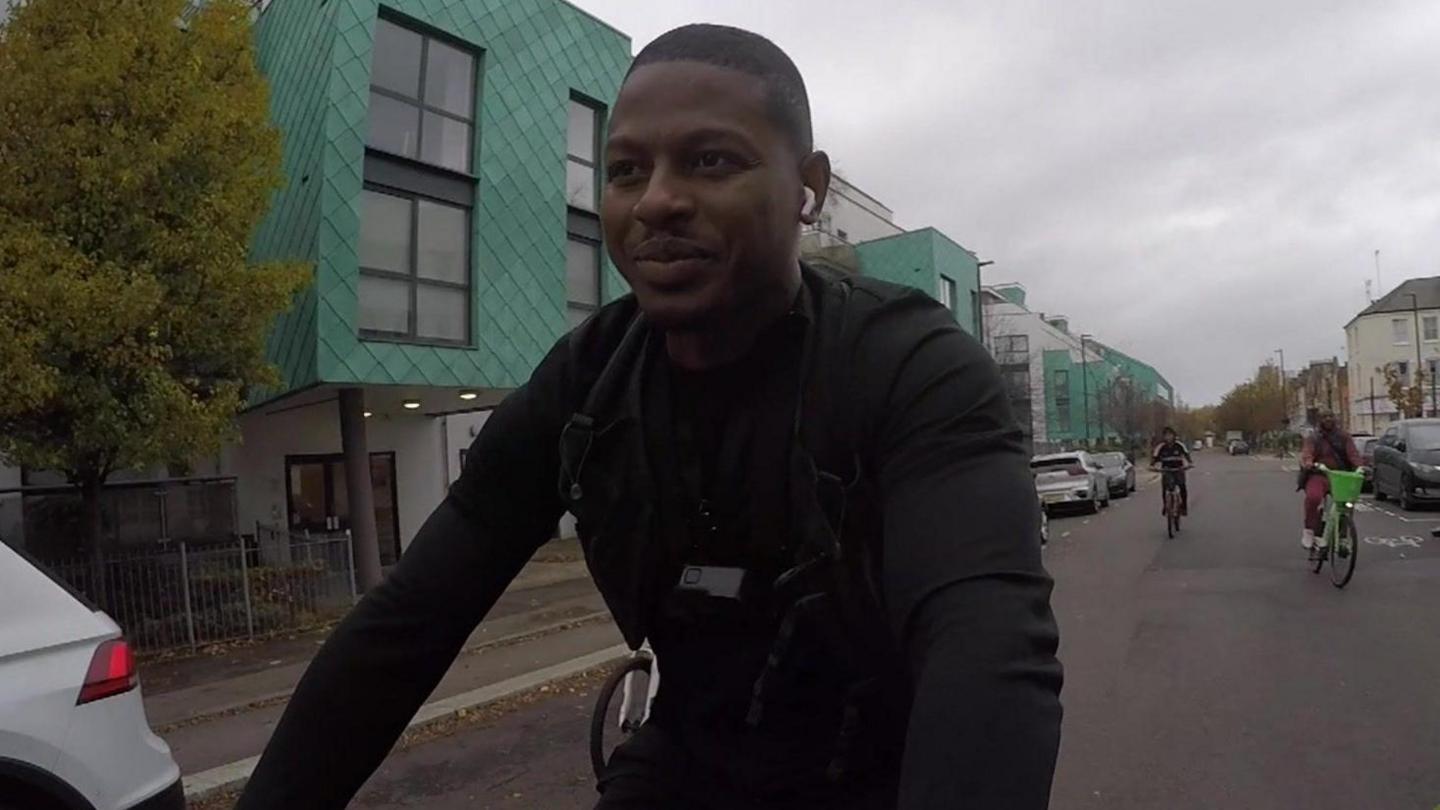
Terrell Lewis says some fathers are "suffering in silence" and need a support network
"I definitely think it's important to have events like this to give fathers that support network. That brotherhood," Terrell tells me. He runs workshops at one of the groups, called Jigsaw, which offers therapeutic support for fathers.
"There are some men out there who are suffering in silence. They don't know where to go."
The VRU was created by the mayor in 2019 to tackle the underlying causes of violence, through prevention and early intervention projects.
Its director, Lib Peck, says: "What we know from listening to 14,000 parents that we work with across London is that, too often, fathers are absent, and what we also see from evidence is that 60% of boys whose fathers are in custody unfortunately go on to offend."
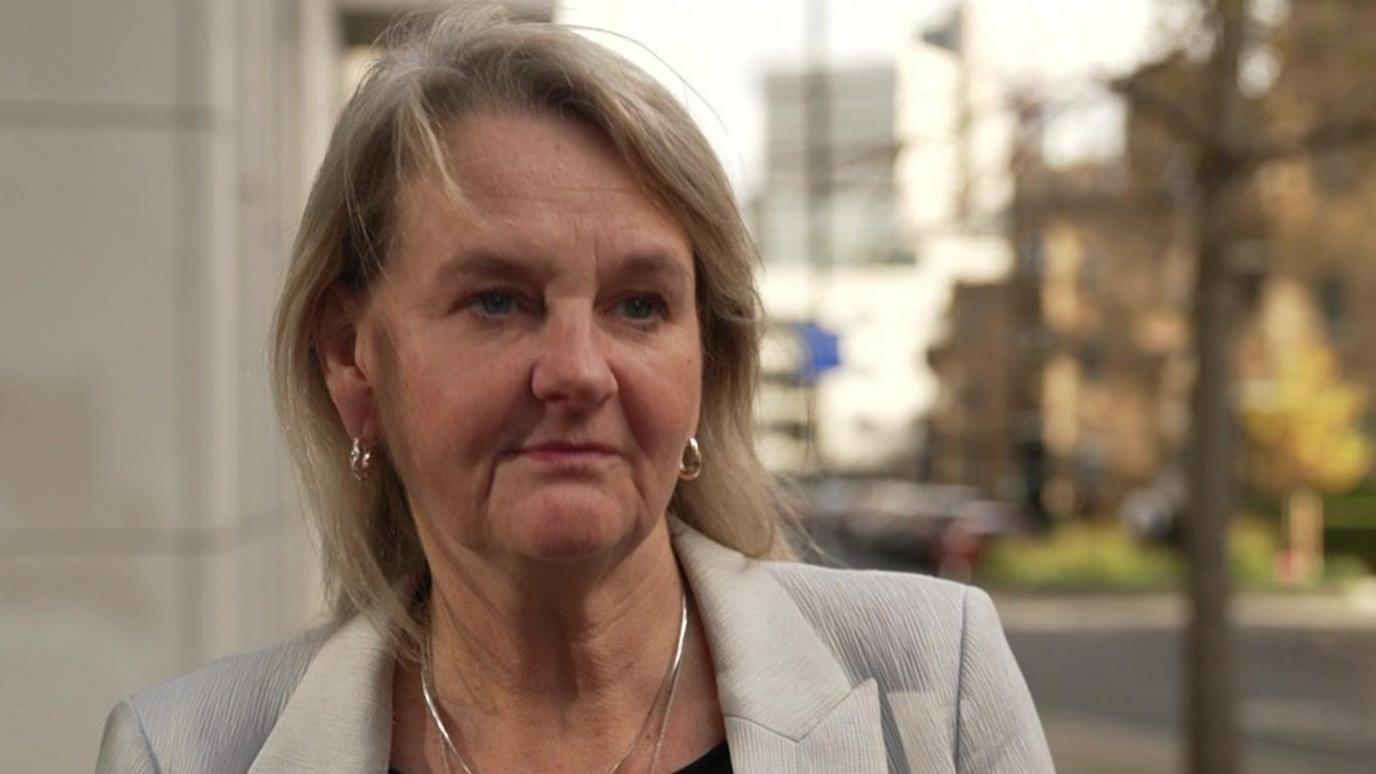
Lib Peck, director of London's Violence Reduction Unit, says research suggests 60% of boys whose fathers are in custody go on to offend
She says their research highlighted gaps in support for fathers in London and suggested many dads were reluctant to engage with the services on offer. This meant it was important to invest in grassroots organisations which already had established relationships within their local communities.
"I think it's incredibly hard for anyone to admit there's a weakness or a vulnerability, but they're much more likely to do it with someone they trust," she adds.
The groups receiving funding in north London are Father2Father, Father Figure, Coffee Afrik, Jigsaw and Lifeline, as well as Groundwork and Bridge The Gap in south London.
They offer support including building healthy relationships and advice for those struggling with co-parenting, or trying to navigate the family court system to gain access to their children.
Courtney Brown, from Father2Father, says it is important for dads to be able to come together and feel they have a voice.
He says taking that first step to seek help can be tough, and emotions are often "very, very raw,” as fathers "break down" through frustration or anger.
"That's why we create those emotional wellbeing spaces for dads to come and know they're not judged, so it's a safe space for them to open up," he says.
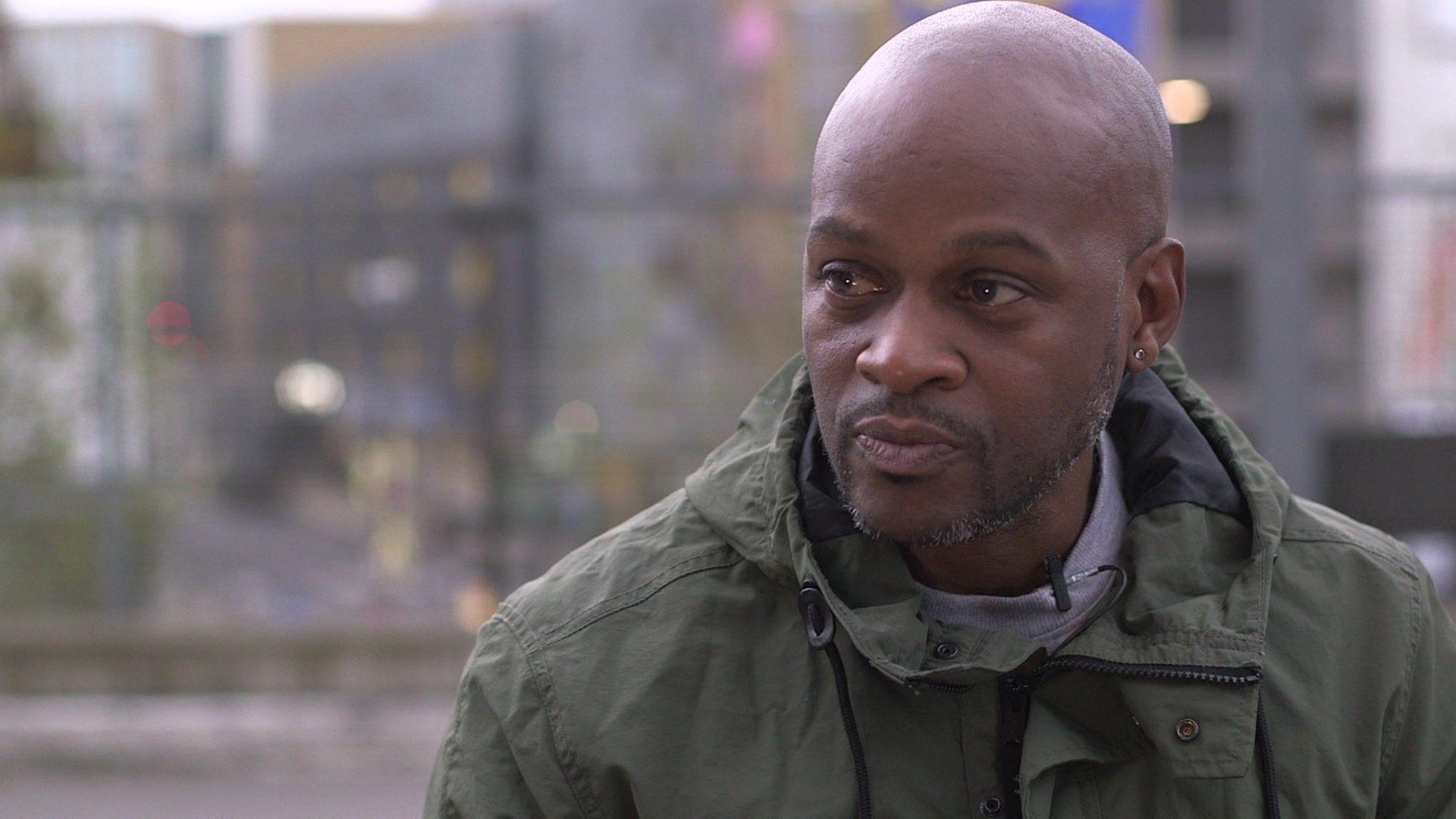
Courtney Brown, from Father2Father, says the group supports many dads who are suffering from "generational trauma"
'We are not here to judge'
Some of those emotions, he says, are the result of generational trauma.
He says the men may be fathers who grew up without a dad themselves, or who witnessed or experienced domestic violence as a child, or had a father struggling with mental health issues, alcohol or drug addictions.
Mr Brown says: "They’re angry about not having had a dad there, or they’re worrying they're going to repeat what their dad did, and holding all that anxiety and anger towards their dads, which then plays out."
He says he was inspired to set up the group after rebuilding a difficult relationship with his own father, which in turn helped him recognise the difficult relationship he had had with his sons - now adults - and to apologise to them.
"There's always hope," he tells me. "We have to give hope. It's about the children and young people. We are not here to judge. We need to understand how they got there, and put a solution in place."
Father could not afford paternity leave to care for ill baby
- Published8 March 2024
Men share mental health challenges of fatherhood
- Published18 June 2023
'Young dads are seen as a problem in our society'
- Published7 November 2023
But what about cases where there are allegations of violence or abuse against fathers, or where it could be unsafe to have a father return to the child’s life?
"We completely abide by the law in connection with what a father is entitled to have in a relationship with a young person," Ms Peck says.
"This is much more about those young fathers who want a relationship, but aren't sure quite how to go about it, perhaps have personal barriers. So it's all done in safe spaces, and it's all making sure clearly it's done within the law."
Funding challenges
According to figures recorded by the Metropolitan police, external there were 1,360 people aged under 25 years old injured with knives in London in the last year to October, down by 6% cent compared to the previous 12 months.
The number of teenagers losing their lives to violence has fallen from a record high of 30 in 2021 to 14 in 2022. However, figures rose again last year to 21.
The VRU is also potentially facing huge cuts, according to draft budget plans drawn up by the Mayor's Office for Policing and Crime, external, which has forecast a reduction from £36.8m in 2025-26 to £28.7m in 2027-28.
The government, which has promised to halve knife crime over a decade, has said it plans to increase the overall policing budget next year - although allocations by force are still to be announced.
"I think the government has made a big commitment to a long term strategy around prevention," Ms Peck says.
"Over the last five and a half years, we've invested in things we know work, in terms of diverting and supporting young people, and making sure they're safer and able to thrive."
She tells me she is "very much hoping that we'll see that reflected in budgets".
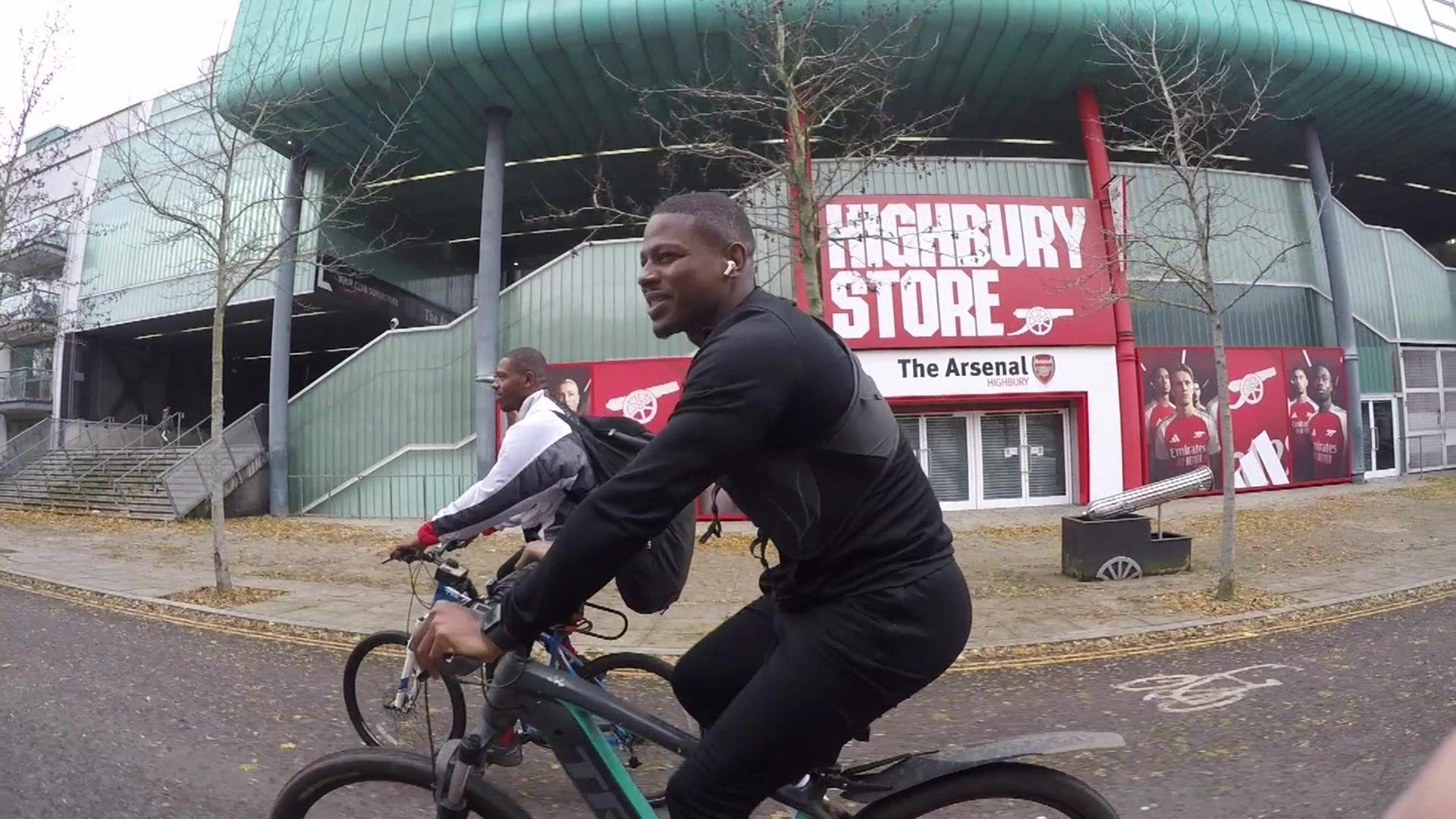
Dads bond over cycling and how they navigate fatherhood
Mr Brown says his work in secondary schools for more than a decade has shown him how children can struggle when they have not able to have healthy relationships with their fathers.
"It might be dads who are working too much... or dad's got a new family... mum was stopping them from seeing dad. That was troubling those young people, and that behaviour was being demonstrated in the classroom, in the corridors, in the community," he says.
Isaac Olagunju, whose son is three years old, tells me about how he had always felt he was different from his friends because he had grown up without his dad present.
“I never wanted my child to go through that,” he explains.
He says he joined a Zoom session run by the group Bridge The Gap in 2021, during a Covid lockdown, seeking help after his relationship had broken down.
"It was literally the best thing ever," he tells me. "It was more of a camaraderie - meeting other dads, hearing their experiences, giving me hope to say 'you know, it's not that bad'."
He says spending time with his son is "nothing but pure joy".
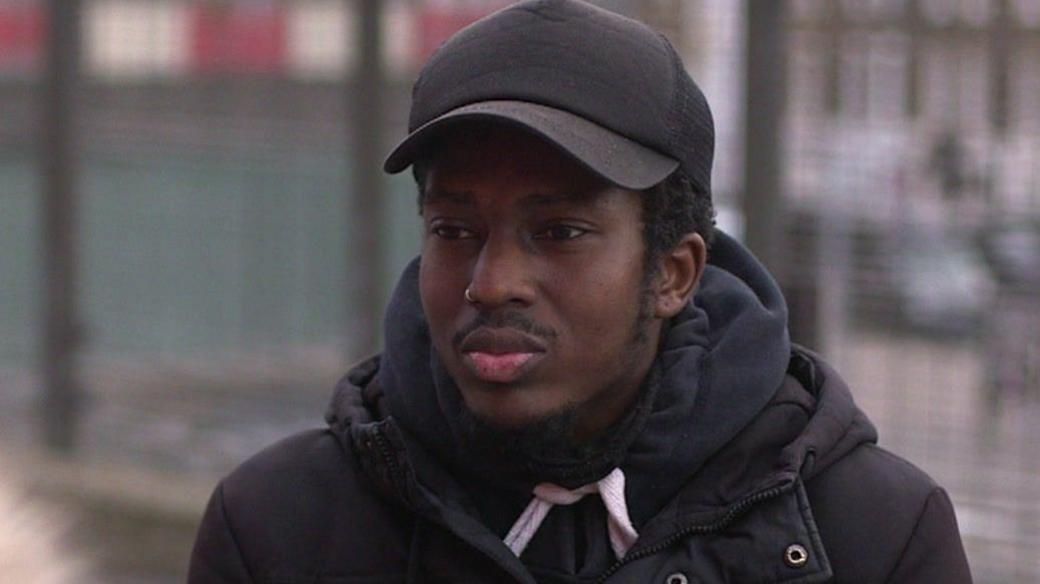
Leon Thompson says he wants his daughter to be safe and happy
Leon Thompson, who has a five-year-old daughter, tells me how he was a young carer for his "very powerful, strong" mum, and has never met his dad.
He says he has found it helpful to seek and share parenting advice with others.
Aged 27, he believes young fathers face particular challenges. For him, this includes finding work around his full-time caring responsibilities.
"I wouldn't say there's any wisdom on our back to look after a young child," he says.
"We haven't had time to build ourselves as an individual, build a sustainable income.
"Also, there's a lot of men who don't want to open up."
He says he and his daughter recently enjoyed attending an afternoon tea together through the group.
He tells me about his hopes for her future.
"I want to be very present for her, to be there to help her with whatever she needs," he says.
"The world is a very nasty place, and it's even harder for women, so I just want to make sure she's safe but also happy with what she's doing and happy in life."
Listen to the best of BBC Radio London on Sounds and follow BBC London on Facebook, external, X, external and Instagram, external. Send your story ideas to hello.bbclondon@bbc.co.uk, external